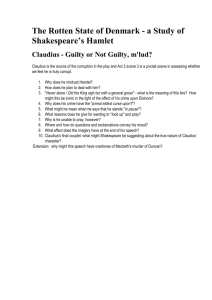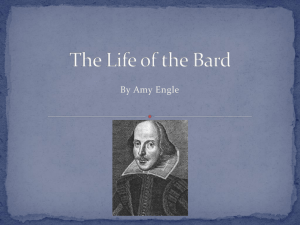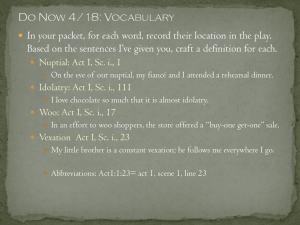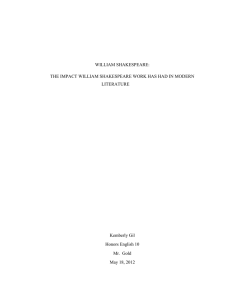Reading Shakespeare
advertisement
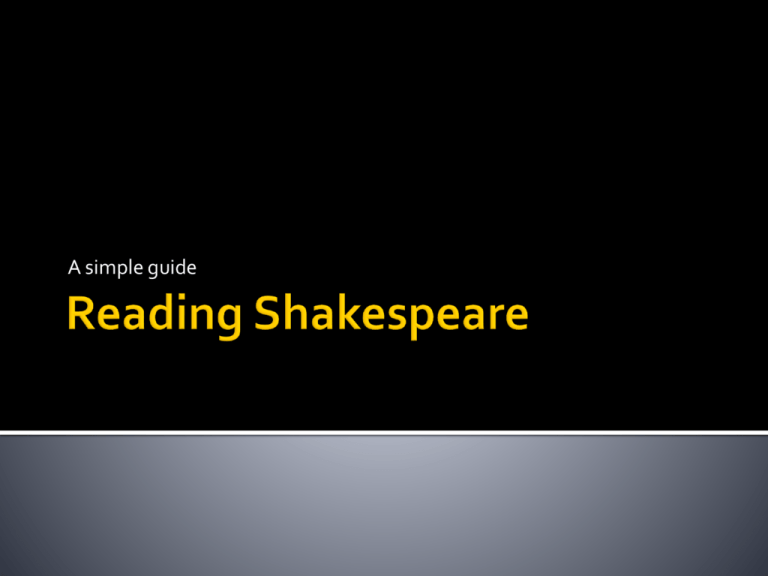
A simple guide 1. 2. 3. 4. Words Sentences Wordplay Implied Stage Action 1. Unfamiliar words Antiquated (we no longer use them) ▪ Parle ▪ Soft ▪ Discussion Hold How do I know this? Footnotes Geography 2. • Elsinore ▪ How do I know this? 3. Footnotes Words that have a different meaning Rivals (1.1.14) 3. ▪ Hamlet’s Castle Companions How do I know this? Footnotes Consider the meaning: The dog bit the boy. The boy bit the dog. In English, meaning is dependant on placement of words. Because of this, unusual arrangements can confuse a reader Shakespeare shifts this for his rhythm Actors will read this to help with meaning At home, reading aloud will help. English builds like this: Subject Verb He Goes Shakespeare will switch these: Verb Subject Goes He English builds like this: Subject Verb Object I Hit Him Shakespeare will do this: Object Verb Object Him I Hit Shakespeare will also separate words that usually belong together: The sentence should read: “When he combated” Shakespeare will write “When he the ambitious Norway combated” Puns Play on words that sound the same but have different meanings Son/sun Claudius asks his “son” why his mood is so cloudy, to which Hamlet answers he is “too much in the sun” ▪ Hamlet is not Claudius son and is not happy being called that. Notice there is very italicized stage action. Shakespeare will write the stage action right into the lines – this is how actors know to: Move across the stage Shiver because of cold Shake hands and hug Do a spit take 1603 – Quarto (Bad) – this includes different names and only 2,300 lines 1604/05 – Good Quarto 1623 – 7 years after death – First Folio
